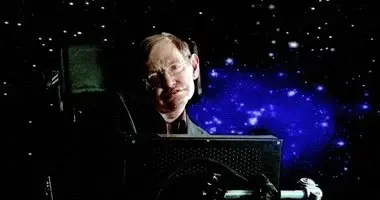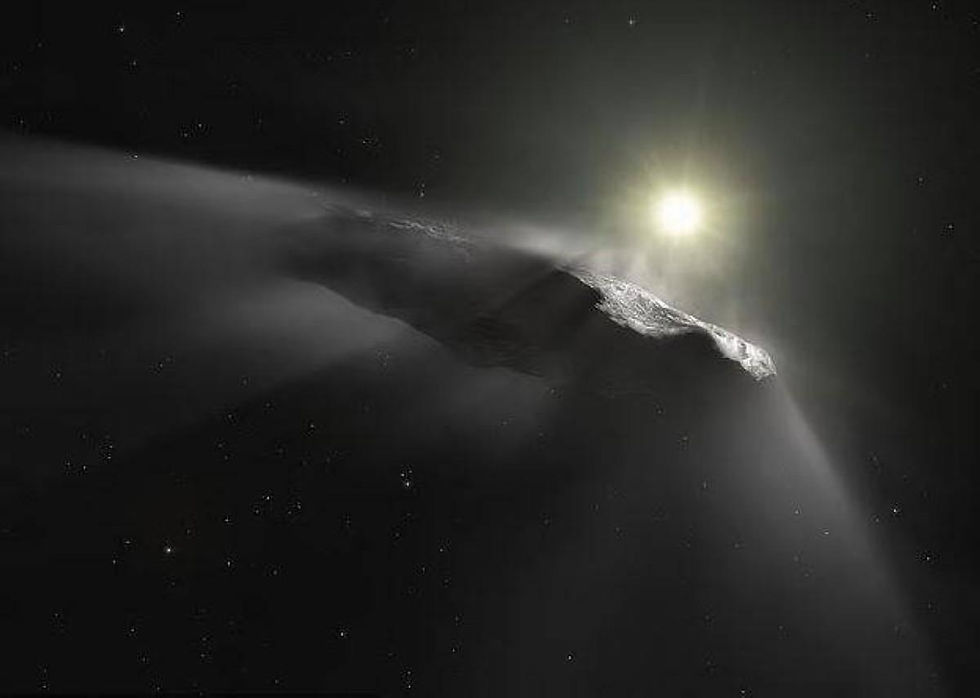Stephen Hawking's Warnings Resurface: The Search for Aliens Could Be Humanity's End
- Next News
- Aug 4, 2025
- 3 min read
The warnings of the renowned physicist Stephen Hawking are once again gaining prominence, suggesting that broadcasting signals from Earth to other cosmic civilizations could have dire consequences for humanity. Hawking, who passed away in 2018, consistently argued that extraterrestrial life might be far more advanced than us, and that our encounter with them could mirror the devastating fate of Native Americans.

This ominous warning may be on the verge of becoming a painful reality, as a prominent scientist recently claimed that a "hostile" encounter with alien life could be just months away, according to the "Daily Mail." Hawking's somber message has been given new weight, as he had cautioned the world that making contact with alien life could lead to a catastrophic outcome for the human race.
The late professor believed that actively searching for extraterrestrials could provoke a deadly invasion, similar to how more advanced civilizations historically decimated less developed ones. In 2004, Professor Hawking famously stated, "Aliens might be far ahead of us. The history of advanced races meeting more primitive people on this planet is not a happy one, and they were of the same species. I think we should keep our heads down." Instead of actively broadcasting our existence, he advocated for passive searches, such as listening for strange radio signals.
Hawking's grim message has recently been re-examined by an international team of researchers studying what they call the "intelligence trap." This concept suggests that overconfidence can lead to disastrous consequences. In this context, a successful contact with an unidentified flying object (UFO) could attract the attention of a malevolent entity that could destroy humanity.
Hawking's words gained more traction after a distinguished astrophysicist at Harvard University suggested that a UFO approaching Earth in December could be a hostile unidentified flying object. Professor Avi Loeb and other scientists have been studying the interstellar object 3I/ATLAS since its discovery approaching our solar system in late June.
While some astronomers have identified 3I/ATLAS as a giant comet, Loeb has argued that there are signs it could be artificial, including its highly unusual trajectory that will pass near Venus, Mars, and Jupiter. This led Loeb to warn that such a craft and the beings controlling it would have one of two motives for visiting our solar system: either to be harmless or to be hostile.
In a study published on the arXiv preprint server on July 17, Loeb wrote, "If the hypothesis proves correct, the consequences could be dire for humanity, possibly requiring defensive measures (although these might prove futile)." The asteroid 3I/ATLAS is expected to pass 223 million miles from Earth on December 17, traveling through the solar system at over 41 miles per second (roughly 150,000 miles per hour).
In a 2024 study in the journal Biomedical Physics & Engineering, researchers echoed Hawking's warning: "The late Stephen Hawking believed that direct contact with advanced alien civilizations would inevitably lead to the colonization of Earth by aliens." The study explained how the "intelligence trap" suggests that highly intelligent individuals can be susceptible to cognitive biases, such as overconfidence or reliance on past experiences, leading to poor decisions.
While some scientists believe there could be invaluable benefits from making contact with aliens, the study's authors supported Hawking's cautious stance, claiming that broadcasting Earth's location to other worlds could be a "tactical error." The scientists agreed that contact with advanced extraterrestrials could have a devastating impact on Earth, similar to Christopher Columbus's impact on Native Americans.
Before his death from ALS at the age of 76, Hawking also added that humans should be hesitant to reply to any signals sent to Earth. In the documentary "Stephen Hawking's Favorite Places," he said, "As I have looked at the stars, I have always imagined that someone out there is looking back. As I get older, I am more convinced than ever that we are not alone. One day we might receive a signal from a planet like Gliese 832c, but we should be wary of replying to it."










Comments